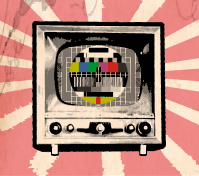Sign the petition for a consultative, development-focused Copyright Review
Thursday, May 13, 2010 17:15 As part of the ‘1978…What were you doing?’ campaign, The African Commons Project along with the National Consumers Forum, have launched a petition, to be sent to the Department of Trade and Industry, calling for a consultative, development-focused Copyright Review.
As part of the ‘1978…What were you doing?’ campaign, The African Commons Project along with the National Consumers Forum, have launched a petition, to be sent to the Department of Trade and Industry, calling for a consultative, development-focused Copyright Review.
We’re calling on you to sign this petition, and in turn, to pass it on to your colleagues and associates, asking them to sign it too.
The petition requests that a consultative, inclusive review of the current Copyright Act be undertaken, which includes consultation and discussion with a diverse range of stakeholders, and that the review reflects the needs of a developing country, in order to create a truly South African Copyright Act.
The petition requests that the following aspects of the Copyright Act be urgently considered and interrogated from multiple viewpoints:
- Retaining the current standard 50-year copyright term mandated by international instruments and resisting the push from some developed countries for a 70-year term or longer.
- Enabling access for the visually-disabled with an amendment which removes barriers to access to disabled persons.
- Reviewing and amending copyright exceptions and limitations as many of the current exceptions and limitations in the Act are ambiguous and/or outdated.
- Addressing how to use orphan works with a clause that allows for permission-free use of a copyrighted work on reasonable terms when the rights holder cannot be located to obtain permission.
- Ensuring harmonisation between different acts and policies, for example conflicts that are apparent between the Electronic Communications and Transactions Act (ECT Act 25 of 2002) and the Copyright Act.
- Examining the scope of protection in order to promote the public domain as a vital pool of non-copyrighted resources that encourages learning and innovation by South Africans.
To read the full petition, and to add your signature, click here.
Not sure what some of these words mean? Here’s a brief description of a few key phrases that are used in the petition:
- Exceptions and limitations: This refers to situations in which the exclusive rights granted to authors, or their assignees under copyright law, do not apply. Thus these are the ‘exceptions to the rule’ or where these rules will ‘limit the rights of the creator.’The two important examples of limitations and exceptions to copyright are the fair use doctrine found in the United States, and the fair dealing doctrine found in South Africa, and many other countries around the world.
- Fair dealing: This is a specific set of possible defenses against an action for infringement of an exclusive right of copyright. Unlike the related United States doctrine of fair use, fair dealing cannot apply to any act which does not fall within one of these categories. In other words, the meaning fair dealing is not as flexible a concept as the American concept of fair use. In South African law we do not have a fair use law; our law is fair dealing.
- Orphan works: This is a copyright work where it is difficult or impossible to contact the copyright holder. This situation can arise for many reasons. The author could have never been publicly known because the work was published anonymously or the work may have never been traditionally published at all. The identity of the author could have been once known but the information lost over time. Even if the author is known, it may not be possible to determine who inherited the copyright and presently owns it.
- Public domain: Also referred to as The Commons, the public domain is an intellectual property designation for the range of content that is not owned or controlled by anyone. These materials are public property, and available for anyone to use freely for any purpose.When the copyright term (in South African law this is from the death of the author plus 50 years) has expired, a work automatically falls into the public domain.
Read more ‘copyright lingo’ definitions here.

